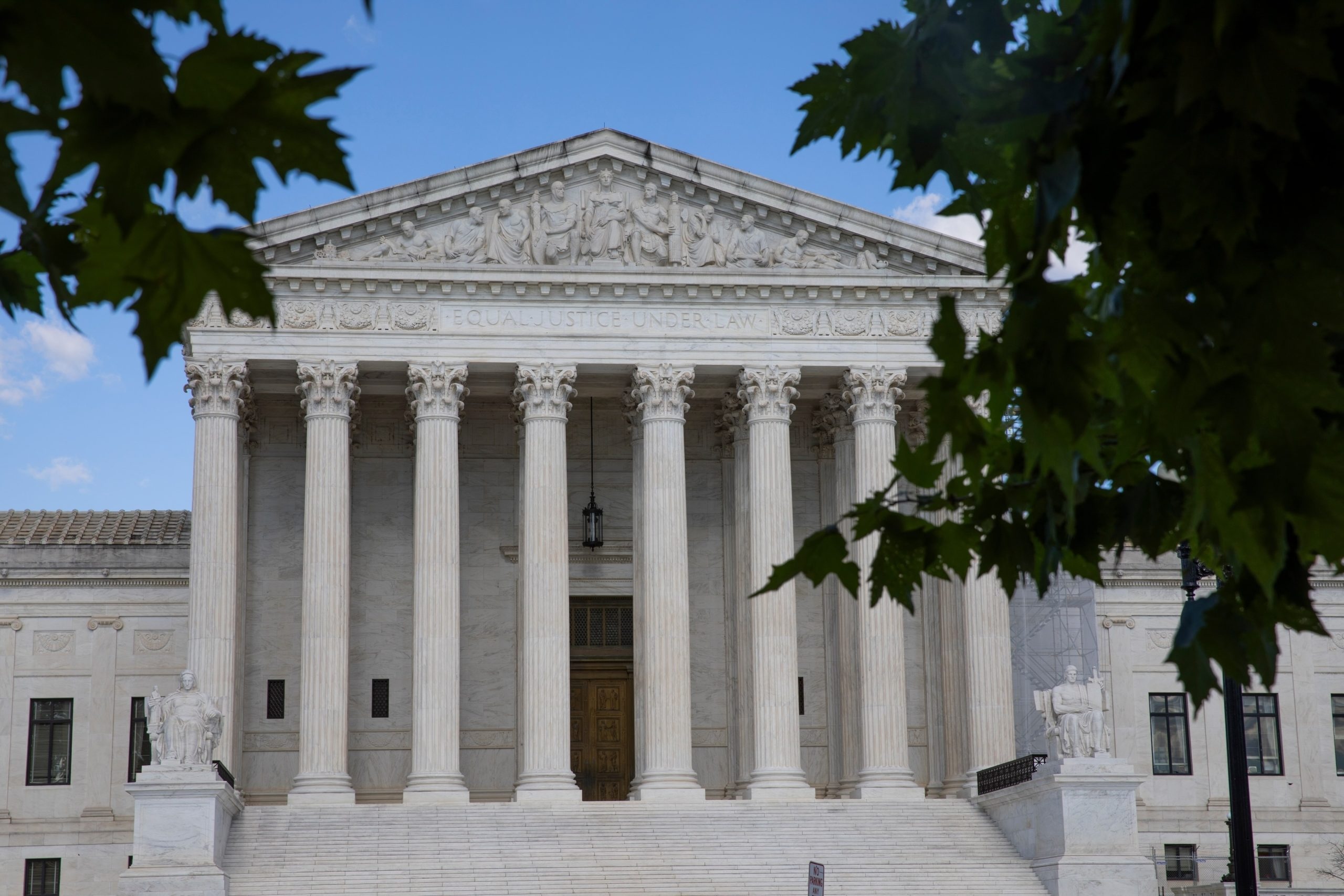The citizenship fight’s potential next targets


Immigration Matters is a recurring series by César Cuauhtémoc García Hernández that analyzes the court’s immigration docket, highlighting emerging legal questions about new policy and enforcement practices.
Please note that the views of outside contributors do not reflect the official opinions of SCOTUSblog or its staff.
Earlier this year, the Trump administration asked the Supreme Court to revive President Donald Trump’s attempt to narrow access to birthright citizenship. As the justices consider the administration’s request, three important briefs submitted to the court hint at an even more significant departure from the broad access to citizenship that has defined U.S. law since the late 19th century. The Justice Department’s petition requesting review, backed up by an amicus brief submitted by Republican members of the House of Representatives and another by Republican Senators, suggest that the Trump administration may be preparing to deny U.S. citizenship to children whose parents are U.S. citizens if the parents, or the children, are also citizens of another country.
The 14th Amendment citizenship clause provides U.S. citizenship to everyone “born or naturalized in the United States, and subject to the jurisdiction thereof.” Since 1898, courts and executive branch agencies have interpreted the amendment’s citizenship clause broadly. Almost everyone born in the United States since then has been treated as a U.S. citizen from birth. On his first day back in the White House, the president issued an executive order directing executive branch agencies to deny U.S. citizenship to certain children born in the United States based on the citizenship and immigration status of their parents. Trump’s order does not target the children of U.S. citizens or permanent resident fathers.
The Justice Department has asked the Supreme Court to review a decision of the U.S. Court of Appeals for the 9th Circuit blocking implementation of the president’s directive. The justices have not yet issued a decision about the government’s request.
In the Justice Department’s petition requesting Supreme Court review, Solicitor General D. John Sauer, the federal government’s lead Supreme Court lawyer, defends the president’s executive order by analyzing the citizenship clause’s language regarding jurisdiction. He argues that the citizenship clause excludes the children of people who do not owe “allegiance” to the United States. Relying on the court’s 1873 decision in the Slaughter-House Cases – the court’s “first case interpreting the Citizenship Clause” – Sauer argues that the citizenship clause excludes from U.S. citizenship children born to “citizens or subjects of foreign States born within the United States.” Although it is not made explicit in the brief, dual citizens are also citizens of a foreign government and so Sauer’s sweeping argument could deny citizenship to their children. And indeed, Sauer does not limit this broad claim anywhere in the government’s written arguments.
A few pages later, Sauer claims that a proper reading of the citizenship clause demands measuring the “allegiance” of a child born in the United States. Sauer quotes a speech by Senator Lyman Trumbull in 1866 appearing to support the view that the citizenship clause should not apply to children who are citizens of another country. “What do we mean by ‘subject to the jurisdiction of the United States?’ Not owing allegiance to anybody else,” Trumbull said in a passage that Sauer quotes. Since dual citizens owe allegiance to another country as much as the United States, they wouldn’t satisfy Trumbull’s test. Trumbull’s view of the citizenship clause should matter, according to Sauer, because he was “the principal sponsor in the Senate” of the Civil Rights Act of 1866, a federal law that contained language regarding citizenship that was similar to what would later appear in the 14th Amendment.
The briefs by Republican elected officials echo Sauer’s arguments. The 18 members of the U.S. House of Representatives and 9 U.S. Senators, whose briefs are identical except for the parties, are represented by the America First Legal Foundation, the non-governmental organization founded by Trump’s immigration advisor Stephen Miller. The briefs repeatedly argue that the jurisdiction required by the citizenship clause excludes citizens of another country. In the opening paragraph of their argument, the elected officials claim that the only people who are “subject to the jurisdiction of the United States,” as the 14th Amendment requires, are those who “owe direct and exclusive allegiance to the sovereign.” Later, they claim that “no one can have two countries.” Discussing the Slaughter-House Cases, they argue that the citizenship clause excludes “children whose parents remained citizens of another country,” as “they lacked total allegiance to the United States.”
Following Sauer, the politicians contend that their restrictive view of the citizenship clause is bolstered by debates surrounding the Civil Rights Act of 1866. According to their brief, Senator John Bingham – who they describe as “a principal author of the future Fourteenth Amendment” – said that the act’s citizenship provision applied to the children “of parents not owing allegiance to any foreign sovereignty,” italicizing the text for emphasis. “This invoked the concept of total allegiance to the United States,” the politicians add in the next sentence. Quoting the same statement by Trumbull that Sauer quotes, the elected officials’ briefs argue, “Any divided loyalty meant no citizenship.” Leaving no doubt that they believe that the citizenship clause excludes people based on their citizenship status as well as that of their parents, the elected officials note, “If the parents or child had divided allegiances, the child would not be a U.S. citizen under the Jurisdiction Clause.”
Applied literally, these arguments would deny U.S. citizenship to children if either they or their parents were citizens of another country when the child was born. President Trump’s executive order does not go that far, so it is unlikely that the court would either at this point. Still, the fact that the briefs reach more broadly than the president’s order suggests that advocates for narrowing access to U.S. citizenship have already thought of another target.
Posted in Immigration Matters, Recurring Columns